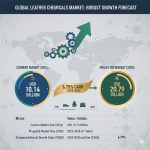In recent years, the world of genetic testing has undergone a transformative shift, with consumer genetic testing leading the charge. The rise of consumer genetic testing has revolutionized how individuals access information about their ancestry, health risks, and genetic traits. Previously, genetic testing was primarily a service offered through healthcare professionals or research studies. Today, direct-to-consumer (DTC) genetic tests are making it easier and more affordable for individuals to gain insights into their genetic makeup from the comfort of their homes.
As this market continues to grow, it brings with it both significant opportunities and notable challenges.
To understand more about Genetic Testing Market- Click for Download a Sample Report in minutes!

The Growing Popularity of Consumer Genetic Testing
Consumer genetic testing has seen a sharp increase in popularity over the past decade. Services like 23andMe, AncestryDNA, and MyHeritage have attracted millions of customers worldwide. These platforms offer individuals the chance to learn more about their genetic makeup, including information about their ancestry, health risks, and potential genetic predispositions to certain conditions.
What makes consumer genetic testing so appealing is its convenience and affordability. Instead of visiting a healthcare provider or genetic counselor, consumers can now order a testing kit online, provide a DNA sample (usually via saliva), and send it back for analysis. Within a few weeks, they receive their results via an online portal. This ease of access, combined with relatively low costs compared to traditional genetic testing, has made these services widely popular.
The demand for direct-to-consumer genetic testing is driven by several factors:
- Increased awareness of genetic health risks: More individuals are becoming aware of how their genetic makeup can influence their health.
- Curiosity about ancestry: Many consumers are interested in learning about their ethnic and genetic backgrounds, especially with the rise of ancestral testing services.
- Personalized healthcare: As interest in personalized medicine grows, consumers are seeking information about how their genetic makeup might affect their response to treatments or medications.
- Growing interest in preventive healthcare: Genetic testing enables individuals to assess their predisposition to various diseases, helping them make proactive health decisions.
Opportunities for the Consumer Genetic Testing Market
The consumer genetic testing market offers a multitude of opportunities for growth and innovation. As the market matures, various sectors stand to benefit from the rise in demand for genetic testing. Below, we explore the main opportunities for the industry.
Expanding Applications of Genetic Testing
One of the biggest opportunities in the consumer genetic testing market is the expansion of test applications. Initially, these tests were mainly focused on ancestry and genealogy. However, as technology has advanced, the scope of consumer genetic tests has broadened significantly.
- Health risk assessments: Consumers can now learn about their predisposition to specific conditions such as Alzheimer’s disease, heart disease, and certain cancers. Companies like 23andMe and Invitae provide genetic health risk reports that help individuals understand their genetic predispositions and take preventative measures.
- Pharmacogenomics: Pharmacogenomics is an emerging field that studies how a person’s genetic makeup influences their response to drugs. With consumer genetic testing, individuals can potentially find out which medications may work best for them and which ones could cause adverse reactions.
- Carrier screening: Genetic testing is being used to screen for inherited diseases that could affect future children, such as cystic fibrosis or sickle cell anemia. As these tests become more accessible, they may help reduce the prevalence of genetic disorders in future generations.
The expanding range of tests available to consumers means that the market is poised for significant growth, as more people are likely to seek tests that provide insights into their health and wellness.
Rising Interest in Personalized Healthcare
Personalized healthcare is a rapidly growing field that tailors medical treatments and lifestyle recommendations to an individual’s genetic profile. Consumer genetic testing plays a key role in this trend by providing individuals with valuable insights into how their genetics may affect their health.
The opportunity for companies lies in integrating genetic testing with personalized healthcare solutions. For example, once consumers learn about their genetic predispositions to certain diseases, they can work with healthcare providers to create personalized prevention and treatment plans. Additionally, the pharmacogenomics industry is growing, and genetic testing can help individuals make informed decisions about the medications they take.
As consumer demand for more personalized healthcare increases, there is a growing opportunity for businesses to integrate genetic testing with other healthcare technologies to offer a comprehensive and tailored approach to health and wellness.
Advances in Technology and Innovation
The technology behind consumer genetic testing is continuously evolving, opening up new opportunities for innovation. For example, next-generation sequencing (NGS) is revolutionizing how genetic information is analyzed. NGS allows for faster and more accurate sequencing of the entire genome, providing detailed insights into genetic makeup.
Advances in technology are also helping to reduce the cost of genetic testing. As sequencing technology becomes cheaper and more efficient, consumer genetic testing services can offer more comprehensive tests at a lower price point. This will drive even greater adoption of genetic testing among consumers, allowing businesses to tap into a broader market.
Additionally, the rise of artificial intelligence (AI) and machine learning offers opportunities to enhance the analysis of genetic data. These technologies can identify patterns in genetic information that may not be immediately apparent, improving the accuracy and usefulness of the results. AI-driven platforms could also help consumers interpret their genetic data more effectively, making genetic testing more accessible and actionable.
Challenges Facing the Consumer Genetic Testing Market
While there are significant opportunities in the consumer genetic testing market, several challenges remain. These challenges must be addressed to ensure the continued growth and success of the industry.
Privacy and Data Security Concerns
Privacy and data security are major concerns for consumers who undergo genetic testing. Genetic data is deeply personal, and consumers may worry about how their data is stored, shared, and used. In particular, concerns about data being sold to third-party companies or used without consent have raised alarms.
For example, several major genetic testing companies have faced criticism for sharing customer data with pharmaceutical companies or research organizations. While many of these companies claim to anonymize data, consumers may still be uncomfortable with the idea of their genetic information being shared without explicit consent.
As the demand for genetic testing grows, addressing data privacy concerns will be crucial. Regulatory bodies are working to create stronger safeguards to protect consumers’ genetic information, but businesses in the consumer genetic testing space must ensure they are transparent about how they handle data and give consumers control over their information.
Ethical Concerns Around Genetic Testing
Ethical issues surrounding consumer genetic testing are another challenge the industry faces. One of the most pressing ethical concerns is the potential for genetic discrimination. While there are laws in place (such as the Genetic Information Nondiscrimination Act in the U.S.) that prevent employers and insurance companies from using genetic information against individuals, the risk of discrimination still exists.
Another ethical issue is the potential for psychological harm. Learning about one’s genetic predispositions to diseases like cancer or Alzheimer’s can be distressing, especially if there is no immediate course of action to take. Some consumers may be unprepared for the emotional impact of this information and may struggle to interpret the results without the guidance of a healthcare provider.
The consumer genetic testing market will need to address these ethical concerns carefully. This includes ensuring that consumers are fully informed about the potential psychological effects of receiving their genetic results and providing resources to help them make sense of the information.
Regulatory and Legal Challenges
The regulatory landscape for consumer genetic testing is still evolving. Different countries have varying levels of regulation for genetic testing, and the industry must navigate these complexities as it expands globally. In the U.S., the FDA has started to regulate some aspects of genetic testing, particularly for tests related to medical conditions. However, other types of tests, such as those related to ancestry, face fewer regulatory hurdles.
As the market grows, more comprehensive regulations may be needed to ensure the safety and reliability of consumer genetic tests. These regulations could include standards for the accuracy of test results, the use of genetic data, and the provision of genetic counseling for consumers who receive medical-related results.
Interpretation of Results
The interpretation of genetic test results can be challenging, especially when it comes to complex health conditions. While some genetic tests offer clear answers, others provide ambiguous or inconclusive results. Without proper guidance, consumers may misinterpret their results or overreact to potential risks.
To address this challenge, genetic testing companies are increasingly offering genetic counseling services to help consumers understand their results. However, these services are often not included in the cost of the test and may not be accessible to all consumers.
The Future of Consumer Genetic Testing
Despite the challenges, the future of consumer genetic testing looks bright. As the technology continues to improve and become more affordable, it will likely lead to even greater adoption. The expanding applications of genetic testing, particularly in the areas of healthcare, personalized medicine, and preventive health, will further fuel market growth.
Moreover, as regulatory frameworks evolve, consumer confidence in the privacy and accuracy of genetic tests will likely increase. In turn, this will contribute to a more sustainable and ethically responsible market.
In the future, we may also see greater integration of genetic testing with other emerging technologies, such as wearable health devices and telemedicine platforms, to provide consumers with a more holistic view of their health and wellness.
For comprehensive forecast and historic data on regions, market segments, customer landscape, and companies- Click for the snapshot of Genetic Testing Industry Report
Conclusion
The rise of consumer genetic testing has created a wealth of opportunities for both consumers and businesses alike. The market is poised for continued growth as demand for genetic insights increases, fueled by advancements in technology and a growing interest in personalized healthcare. However, there are significant challenges that need to be addressed, including privacy concerns, ethical dilemmas, and the need for better regulation.
With careful attention to these challenges and continued innovation, the consumer genetic testing market has the potential to reshape healthcare, offering individuals the tools to make more informed decisions about their health and wellbeing. The future of genetic testing holds great promise, offering new opportunities for personalized medicine, disease prevention, and a deeper understanding of our genetic makeup.
See the whole Genetic Testing Market research by Vantage Market Research for a thorough examination of industry projections, major competitors, and geographical trends.
![[Market Research Reports] – Research Google News Blog | VMR.Biz](https://www.vmr.biz/wp-content/uploads/2022/12/logo-removebg-preview.png)











